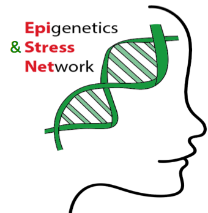Epigenetics and Stress Network
A biosocial systems approach to understanding the epigenetic embedding of social stress responses. Our project aims to build a network of biological and social scientists to explore how social stress causes epigenetic changes which affect biology and behaviour.
Challenges in our social environment
The social environment in which we live provides daily challenges that affect how we think and feel, influencing our behaviour and sense of well-being. However, it is far from clear exactly how these experiences affect us at a physical level.
Epigenetic mechanisms and social stress
A new research finding in biology has shown that molecules are found in all our cells which interpret our experiences by switching genes on or off in particular cell types. These molecules, or ’epigenetic’ mechanisms, bind to DNA and control gene activity. This in turn changes the functions of our cells, tissues and organs, and so affect what we think, feel and do. We are beginning to understand that these epigenetic mechanisms are modified by factors that also affect our health, and recent evidence indicates that social stress is one such factor.
Social and health inequalities
Societies in which there is a bigger gap between rich and poor, such as the UK, also have bigger, more stressful social and health inequalities. Good evidence suggests that the social stress caused by social inequality leads to ill-health and that this link may involve epigenetic mechanisms.
A network of biological and social scientists
Our project aims to build a network of biological and social scientists to explore how social stress causes epigenetic changes which affect biology and behaviour. To address this problem, we will establish a team with wide-ranging expertise in investigating:
- The physical effects of stress on gene activity in the brain and body
- The impacts of social inequality on health
- How we think about the way our experiences get under our skin to shape behaviour and well-being.
Engaging with industry, government, health service professionals and the general public
Our team of social science, public health and biology researchers will develop and carry out novel shared projects. We will hold discussion meetings to consider new biological and sociological ideas. We will share new discoveries that will help to explain how social stresses exert their effects on the brain and the rest of the body, and the roles of epigenetics in these processes. We will also meet with industrial, government and health service professionals, to consider the potential impacts of our research on their work, and engage with the general public more broadly to discuss the wider implications of this research for society.
For more information please see Epigenetics and Stress Network website
Please engage with the Epigenetics and Stress Network via ![]() Twitter or
Twitter or ![]() Facebook
Facebook

